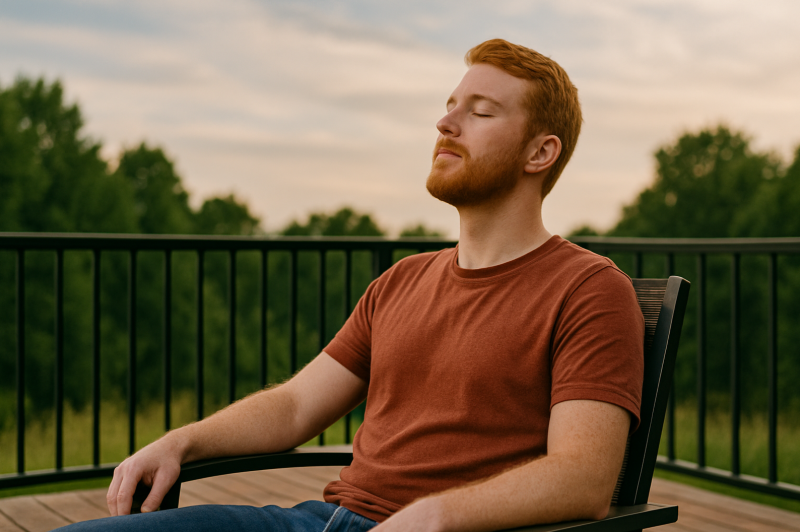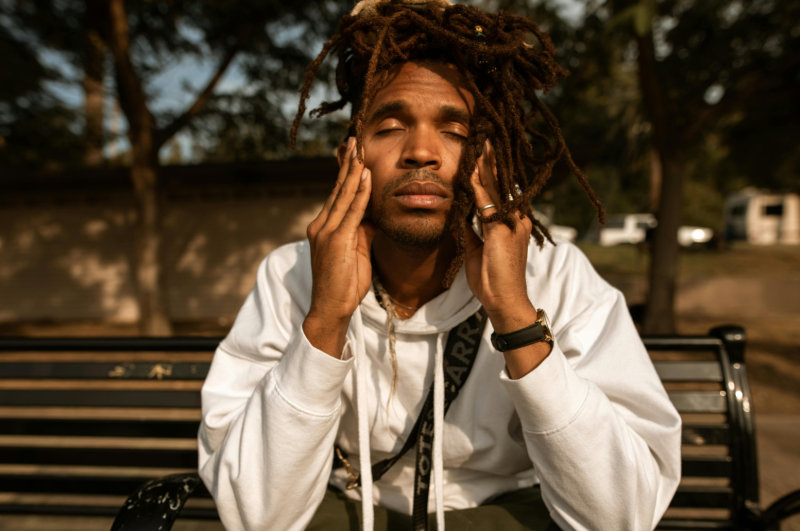
Death anxiety is a quiet fear many people carry. Here’s why it happens, how it shows up, and what you can do to live more fully—even with the fear.
By Sergio Toledo
Editor-in-Chief, Heed to Heal
Introduction
Some fears are loud and obvious. Others live in the quiet corners of your mind—surfacing late at night, in moments of stillness, or after hearing bad news. Death anxiety is one of those quiet fears. It’s the ache in your chest when you think about losing someone you love. It’s the panic that creeps in when you wonder what happens when you die. It’s the dread that doesn’t always make sense—but still won’t leave you alone.
You’re not strange for feeling this. You’re human.
Understanding Death Anxiety
Death anxiety refers to the persistent or recurring fear of dying, losing others, or facing the unknowns of death. It can take many forms—worrying about pain, nonexistence, what comes after, or even the thought of no longer being remembered. Psychologist Irvin D. Yalom refers to this as “existential anxiety,” suggesting that our fear of death often sits just beneath the surface of more ordinary worries.¹
This fear tends to intensify in moments of silence or transition. It’s common for people to feel it more strongly during major life changes, after a loss, or even in the stillness of bedtime. Moments that should feel restful or joyful can unexpectedly trigger an unsettling awareness that everything is temporary. Terror Management Theory suggests that we cope with this fear by attaching to meaning—relationships, culture, faith, purpose—but when those anchors feel uncertain or out of reach, the fear can quietly take over.²
When the Fear Seeps into Everyday Life
Even if you’re not thinking about death consciously every day, death anxiety can still influence how you move through life. It can show up as trouble sleeping, a constant need to stay busy, obsessively checking health symptoms, or a subtle but persistent fear of losing the people around you. In more intense cases, it can lead to avoidance—avoiding deep relationships, important conversations, or anything that feels “too real.” For some, it even surfaces as a sense of disconnection during otherwise happy moments—like they’re unable to fully enjoy what’s happening because part of them is already afraid of losing it.
These experiences are more common than most people realize. But they’re rarely talked about—because fear of death still carries a social taboo. As a result, many people feel alone with their thoughts, wondering if something is wrong with them for being afraid of something we all eventually face.
Learning to Live with It
There is no quick fix for death anxiety. But there are gentle, honest ways to live with it.
One of the most powerful things you can do is simply allow yourself to talk about it. Whether it’s with a trusted friend, a therapist, or through journaling, giving voice to the fear tends to reduce its grip. As grief educator Megan Devine says, pain grows louder in silence.³ When we speak it, it often softens.
Mindfulness can also be helpful—not in the sense of ignoring fear, but by teaching you how to come back to the present. When your thoughts spiral, grounding yourself in your breath or surroundings can calm your nervous system and bring your mind out of the unknowns and into what’s real and safe in the moment. Even simple acts like feeling your feet on the floor or naming what’s around you can help anchor you.
Finding meaning—whether through faith, creativity, relationships, or simply taking care of others—is another powerful way to make peace with mortality. You don’t have to have all the answers. But exploring what makes your life feel full and real can make the fear of death less overwhelming. When you’re connected to something bigger than yourself, the unknown doesn’t always feel so empty.
If death anxiety becomes too heavy to carry on your own, professional support can make a real difference. Therapies such as cognitive-behavioral therapy (CBT), acceptance and commitment therapy (ACT), or existential therapy can help you unpack the roots of your fear and build more peace around it.⁴
Final Thoughts
If you’re someone who quietly carries death anxiety, know that you’re not strange, broken, or overly dramatic. You’re simply aware—aware of the beauty and fragility of being alive. The fear doesn’t have to define you, and you don’t have to solve it completely.
Instead, you can learn to live alongside it. To talk about it, soften it, and gently remind yourself: fear and love often live side by side. And the very fact that you’re afraid of losing life means that, deep down, you care about living it well.
References
- Yalom, Irvin D. Staring at the Sun: Overcoming the Terror of Death. Jossey-Bass, 2008.
- Greenberg, Jeff, Solomon, Sheldon, and Pyszczynski, Tom. The Worm at the Core: On the Role of Death in Life. Random House, 2015.
- Devine, Megan. It’s OK That You’re Not OK: Meeting Grief and Loss in a Culture That Doesn’t Understand. Sounds True, 2017.
- Menzies, Rachel E. et al. “Treating Death Anxiety: A Meta-Analysis.” Journal of Anxiety Disorders, 2018.
Originally published by Heed to Heal, 07.05.2025, under the terms of a Creative Commons Attribution-NonCommercial-NoDerivatives 4.0 International license.






